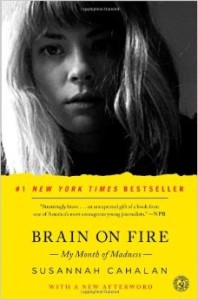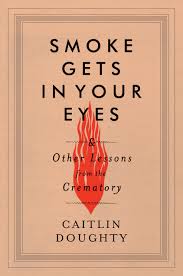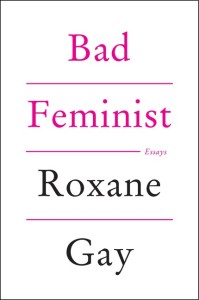Brain on Fire
Written by Ashley Kelmore, Posted in Reviews
Four Stars
I’ve been reading at a faster clip now that I’m actually done with the Cannonball. Or at least, it feels like it. Maybe it’s because the pressure is off. This latest book comes courtesy of that old traveler’s standby, Hudson News. Even though I have about 20 unread books on my Kindle – including that bastard book five of A Song of Ice and Fire – I always wander into this newsstand/bookstore when I’m at the airport. This book caught my eye and I’m really glad it did.
Ms. Cahalan was a reporter at the New York Post when she started acting strangely. She was paranoid, manic, and even started to have seizures. One doctor thought she was an alcoholic; she eventually was admitted to an epilepsy ward at NYU, where she underwent tests as her condition deteriorated. Was she having a nervous breakdown? Was she bi-polar? Was she sick with something that was physically altering her brain?
It is not a spoiler to say that doctors eventually figured out what was going on. But the journey to get there is fascinating, especially because Ms. Cahalan serves as both the subject as well as the author, but not in the traditional memoir way. Because she has very few memories of that time, she treats herself as the subject of a story. She pursues answers and creates a narrative the way she would a feature story; in fact the book stems from a feature she wrote about herself once she returned to her position at the Post.
The book is well-written, interesting, and compelling. The story it tells is terrifying in some respects, but hopeful in others.





